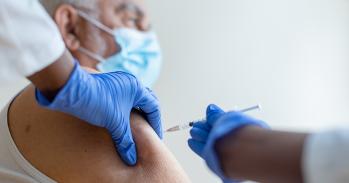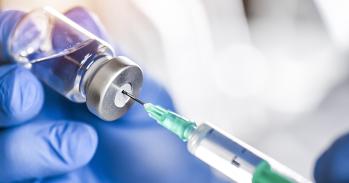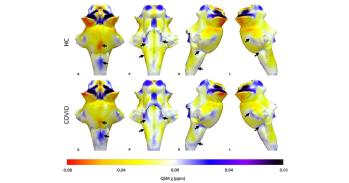
An estimated 7,000 students are already taking part each week in the University of Cambridge’s Asymptomatic COVID-19 Screening Programme, but the team running the programme are encouraging as many students as possible to join in, and help keep Cambridge safe.
An estimated 7,000 students are already taking part each week in the University of Cambridge’s Asymptomatic COVID-19 Screening Programme, but the team running the programme are encouraging as many students as possible to join in, and help keep Cambridge safe.
The more students that participate, the less transmission and fewer cases we’ll see, and the less likely students will be to have to self-isolate. It’s a win-win situation
Isobel Ramsay
This is particularly important as UK cases continue to rise, and evidence shows that even people who have been fully vaccinated or previously infected are at risk of infection.
At the start of Michaelmas term in October 2020, the University of Cambridge introduced a free weekly asymptomatic screening programme for all students resident in its Colleges, later extended to include students living in private accommodation. It is complemented by a testing programme for staff and students with symptoms of possible COVID-19. Both programmes use PCR tests – still considered the gold standard. For asymptomatic screening, up to ten students pool their swabs in a single sample tube – making the available tests go further.
According to the latest report from the team, in the week 18-24 October 2021, around 5,200 students contributed swabs to pooled sample collection and registered their tests. However, the actual number of students taking part is thought to be higher – about 7,000 students each week – because a significant number of students contribute unregistered swabs. Those swabs are still tested, but it makes the task of contacting students in positive pools take more time.
In that same week, preliminary analysis suggests the Asymptomatic COVID-19 Screening Programme identified eight positive cases from across the student population. A further four were identified by the University’s symptomatic testing programme. These numbers are down from 16 asymptomatic and 13 symptomatic positive cases the previous week.
Dr Nicholas Matheson, from the Cambridge Institute of Therapeutic Immunology and Infectious Disease (CITIID), designed the screening programme. He said: “It’s great that so many students are taking part every week, but we’d like to encourage even more to join in. The number of COVID-19 cases among our students is still, thankfully, relatively low – but across the UK, we’re seeing numbers increase. None of us can afford to be complacent – even if you’re fully vaccinated, it’s still possible to get infected with the Delta variant, and pass it on to others.
“Young people are at risk of ‘long COVID’, with some people experiencing symptoms lasting weeks or months. We are also seeing a small number of young people with COVID-19 admitted to our hospital – even to intensive care. It’s therefore incredibly important that we do everything we can to keep numbers low.”
By identifying infected students early, before they develop symptoms, Dr Matheson and colleagues can help students avoid unwittingly infecting others. This breaks chains of transmission, reduces the risk of outbreaks, and limits disruption to University and College life. By participating in the programme, students can therefore help keep their friends, colleagues, and the wider community safe – this is especially important for those people who remain vulnerable to COVID-19, despite being vaccinated themselves.
Dr Isobel Ramsay, Clinical Lead for the screening programme, is keen to allay concerns about the risk of unnecessary self-isolation. “Because we use PCR tests and a two-step testing strategy, with individual confirmatory tests for positive pools, you’re exceptionally unlikely to test positive unless you’re genuinely infected. And if you do test positive, your friends and contacts won’t be required to self-isolate if they’ve been fully vaccinated by the NHS.
“In short, the more students that participate, the less transmission and fewer cases we’ll see, and the less likely students will be to have to self-isolate. It’s a win-win situation.”
The Asymptomatic COVID-19 Screening Programme is supported by Cambridge Students’ Union (SU), whose Undergraduate and Postgraduate Presidents are part of the team running the programme.
“The level of participation from Cambridge students is something that we’re really proud of,” said Anjum Nahar, Postgraduate President of Cambridge SU. “Everyone wants to have the best possible experience during their time at Cambridge, and that means keeping the number of cases as low as possible. We all need to do our bit. We’re taking part not just because it protects us, but because it helps protect everyone around us.”
Students who have not yet signed up to the programme can do so on the University website. Further information about the programme is available on the Asymptomatic COVID-19 Screening Programme pages.

The text in this work is licensed under a Creative Commons Attribution 4.0 International License. Images, including our videos, are Copyright ©University of Cambridge and licensors/contributors as identified. All rights reserved. We make our image and video content available in a number of ways – as here, on our main website under its Terms and conditions, and on a range of channels including social media that permit your use and sharing of our content under their respective Terms.




